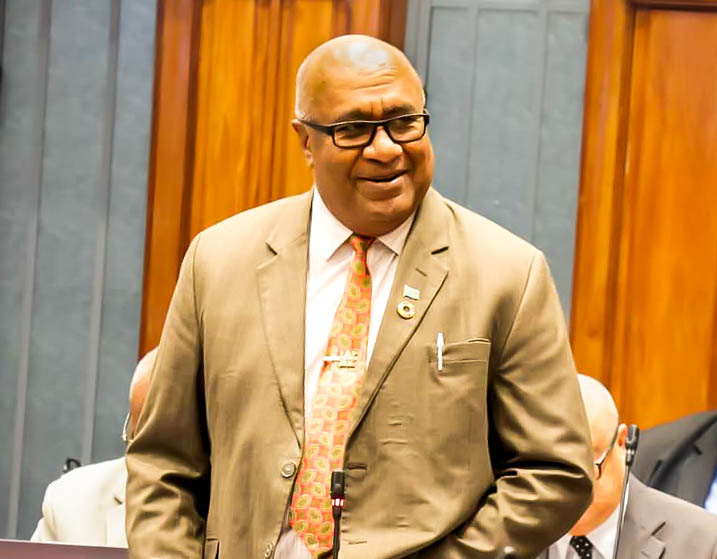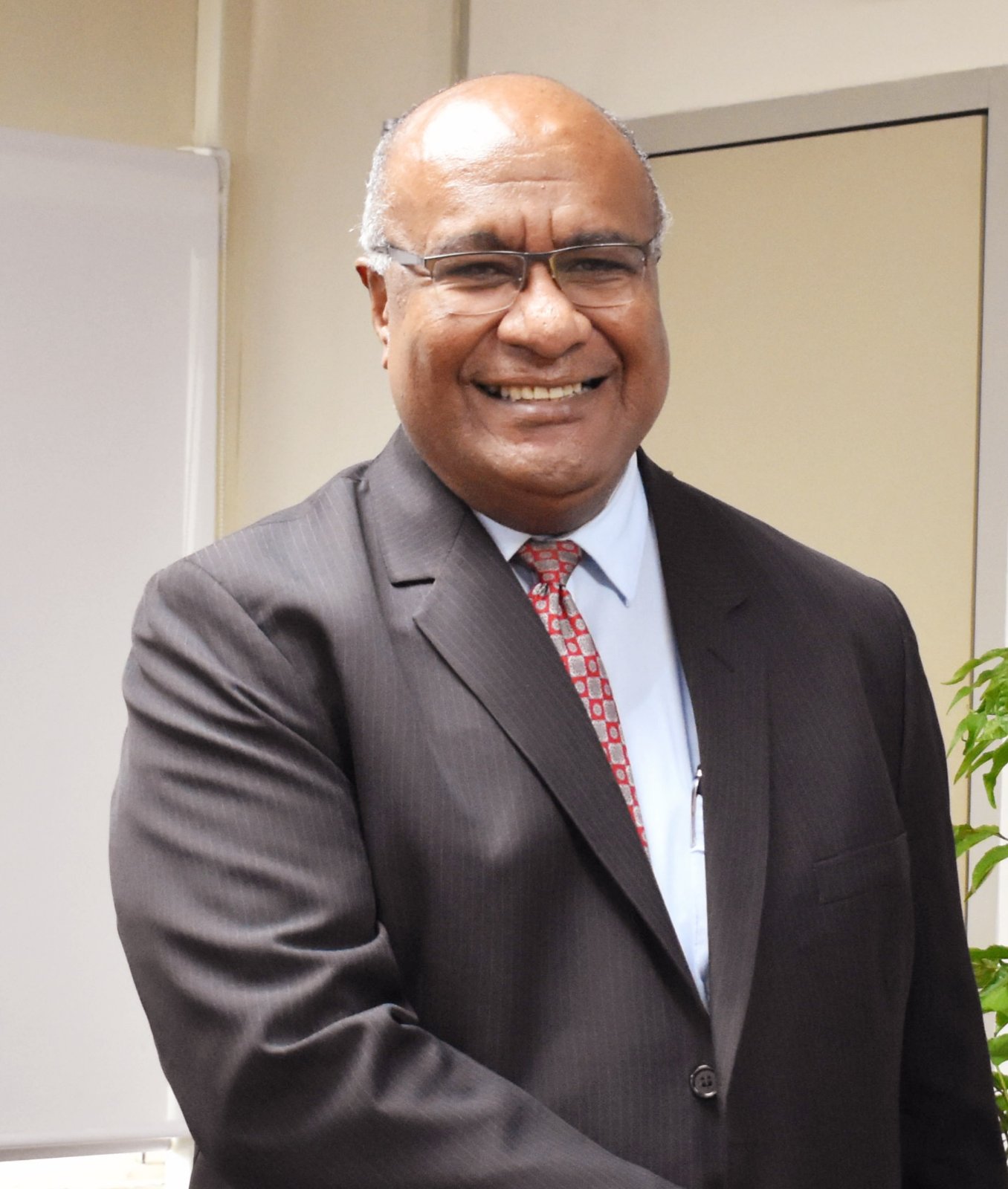ADDRESS BY THE DEPUTY PRIME MINISTER AND MINISTER FOR TRADE, CO-OPERATIVES, MICRO, SMALL AND MEDIUM ENTERPRISES, AND COMMUNICATIONS
HON. MANOA KAMIKAMICA
IMPACT OF U.S. TARIFFS ON FIJI
Mr Speaker Sir,
I rise to address this Honourable House on the recent imposition of new tariffs by the United States Government.
I will provide an overview of the evolving situation, our Government’s proactive response, and the strategic steps we are undertaking to safeguard the interests of our exporters, uphold the livelihoods of our people, preserve the integrity of our bilateral trade ties and broaden out our trade relations.
Background on U.S. Tariffs
Mr Speaker Sir,
On 3 April 2025, the President of the United States declared a national emergency in response to ongoing trade imbalances, with the trade deficit for U.S. goods reaching $1.2 trillion in 2024. As part of this declaration, a tariff policy was announced through an executive order, introducing a baseline 10% tariff on all imports into the U.S., effective from 5 April 2025.
Additionally, 57 countries identified as having significant trade surpluses with the U.S. were subjected to higher, individualised tariffs ranging from 11% to 50%, which were to take effect from 10 April 2025. Fiji was included in this group and was assigned a tariff rate of 32% on its exports to the U.S.
However, on 10 April 2025, the U.S. administration announced a 90-day suspension of tariffs beyond the baseline 10% that applies to all countries, including Fiji.
This means that, for the next 90 days, our exports to the U.S. will only be subject to the baseline 10% tariff. The suspension will conclude on 9 July 2025, after which the original tariff structure will be reinstated unless further actions are taken.
Mr Speaker Sir,
The U.S. has been Fiji’s number one export destination, accounting for approximately 20% of all goods exported. In 2024, the total value of Fiji’s exports to the U.S. stood at $439.08 million, while Fiji’s imports from the U.S. amounted to $425.03 million, resulting in a trade surplus of $62.7 million for Fiji.
Some of Fiji’s major exports to the U.S. include bottled water, kava, fresh turmeric, cane sugar, seafood, fish, high-quality mahogany, and smaller quantities of various agricultural products such as taro, ginger, and a variety of value-added fast-moving consumer goods. These products are highly regarded in the U.S. market, and their presence reflects the diverse nature of products that Fiji offers.
What is particularly important to emphasise, Mr Speaker, is the complementary nature of these exports. Fiji’s products do not compete with U.S. goods; rather, they complement them. This means that rather than facing direct competition, Fijian goods are filling niches in the U.S. market, offering American consumers a broader range of high-quality options.
Mr Speaker Sir,
Behind these exports are thousands of livelihoods in Fiji. Over 18,000 smallholder farmers rely on the kava industry. More than 5,000 farmers depend on ginger, turmeric, and skincare value chains, and approximately 11,000 farmers are engaged in the sugarcane industry.
A recent survey conducted by our Trade Commission North America, in response to the proposed new tariffs, found that for some of our businesses — particularly those in fresh turmeric, kava, ginger, and skincare — the United States represents 100% of their total export market. In fact, around 70% of our key exporters derive over 60% of their revenue from the U.S. market alone.
These statistics emphasise just how critical the U.S. market is to the success of Fijian exporters and, by extension, to the livelihood of thousands of Fijian families.
Fiji’s Import Relationship with the United States
Mr Speaker Sir,
Fiji is not just an exporter to the U.S.; we are also a growing and active importer of American goods, with significant potential to deepen this trade relationship further.
The economic reality is that Fiji lacks the production capabilities or scale of industrial capacity like the U.S. As such, we rely on high-quality American goods, technology, and components to support our domestic industries and everyday needs.
In 2024, Fiji imported goods from the U.S. valued at more than $425 million, covering a wide and diverse range of sectors. These included machinery, electrical and electronic equipment, and vehicles, as well as aircraft parts and other transport-related equipment.
Imports also comprised pharmaceutical products and medical instruments, food and agricultural products, and chemical inputs, along with textiles, footwear, and apparel—demonstrating the breadth and depth of American exports that support Fiji’s industries and everyday needs. Many of these U.S. exports already enjoy duty-free or low-duty entry into the Fijian market.
Mr Speaker Sir,
I would like to highlight that approximately 72% of all U.S. goods imported into Fiji enter duty-free. For the remaining imports, tariff rates are generally low and facilitative. About 25% of U.S. goods are subject to a modest 5% duty, while only a small portion—around 3%—face higher duties ranging from 15% to 32%.
Overall, the average weighted tariff on U.S. imports stands at just 1.8%.
And of course, if one looks at Fiji’s exports (i.e., USA imports from Fiji) in proportion to total USA imports of USD 4.1 trillion in 2024, it is 0.00001%.
As such, Honourable Speaker, the position of the People’s Coalition Government is that whilst it understands the desire for the USA to impose tariffs, we seek proportionality, fairness and reasonableness.
Government Response and Strategy
Mr Speaker Sir,
The ministry has not been resting on its laurels but has acted swiftly and tactically in response to these developments. Our response has been measured, strategic and coordinated, aimed at minimising potential disruptions for our exporters.
As part of our diplomatic outreach, the Ministry immediately reached out to the U.S. Ambassador to Fiji, Her Excellency Marie Damour, on the 14th of April 2025. This meeting allowed us to raise our concerns directly with the U.S. Mission at the earliest stage and seek an audience with the US Trade Representatives as a matter of urgency. (USTR)
The USTR Honourable Speaker is the US agency that is responsible for the USA’s international trade, commodity and direct investment policies and negotiations.
The meeting with her Excellency was aimed at gaining a clearer understanding of the intention and underlying rationale behind the proposed tariffs. The discussion was held in the spirit of partnership, with a view to preserving the positive momentum in our bilateral relations over several years but clearly articulating the adverse implications of the tariffs on the Fijian economy and our exporters, most of whom are our hard-working farmers, as we all know.
Following this, the hard-working trade team led by the Permanent Secretary, engaged swiftly in meetings with senior officials at the office of the USTR. Over the last 2 years we had been cultivating some strong relationships with USTR, and this helped greatly as we sought an urgent meeting with the Ambassador of the USTR.
Last Wednesday, the 16th of April, 2025, a high-level meeting occurred between myself and the United States Trade Representative Ambassador, H.E. Ambassador Jamieson Greer.
The meeting was very positive, with both sides reaffirming the longstanding Fiji–U.S. relationship and expressing commitment to deepening trade cooperation.
Ambassador Greer acknowledged Fiji as a good-faith trading partner and proposed several areas for cooperation. We both agreed to task our senior officials to advance technical discussions and maintain momentum toward a mutually beneficial outcome. The senior officials are to occur soon, and I am confident that we should be able to agree to a way forward before the 90-day window.
Mr Speaker Sir,
To ensure that our discussions and responses are grounded in the lived realities of our exporters, the Ministry, through our Fiji Trade Commission in North America, undertook a targeted survey to assess the potential impact of tariffs. This outreach involved Fijian exporters across diverse sectors—including agriculture, food and beverage, skincare, and fisheries. The objective was to capture both immediate and longer-term effects on their operations, market access, supply chains, and relationships with smallholder farmers who are integral to Fiji’s export economy.
The findings, drawn from written submissions and follow-up conversations, have provided critical insights into sector-specific vulnerabilities and are helping shape an evidence-based strategy and our case to the USTR.
In addition, we have engaged in trilateral discussions with our closest regional partners – Australia and New Zealand.
The Ministry is also working in close coordination with key regulatory agencies, including the Biosecurity Authority of Fiji (BAF) and the Fiji Revenue and Customs Service (FRCS), in preparation for the upcoming negotiations.
Finally, Honourable Speaker, well before the US tariff action, Fiji has been broadening progressively its trading relations in the last 24 months with all its development partners. The approval of the IEPA with the European Union, which will provide access to the EU market under global sourcing provisions; the reopening of PACER Plus negotiations; and the Regional EPA with the UAE are just a few examples of the work that is being done, including membership at APEC.
Conclusion
Mr Speaker Sir,
The Government will spare no effort in ensuring that the interests of Fiji and our exporters—many of whom are micro, small, and medium enterprises—are protected, supported, and empowered to continue thriving.
I urge all Honourable Members of this House, on both sides, to stand in solidarity with our MSMEs, exporters, and farmers, and to support the Government’s ongoing efforts to engage the United States in good faith, with the shared aim of securing a fair and enduring outcome for our people.
Thank you, Mr Speaker Sir.



